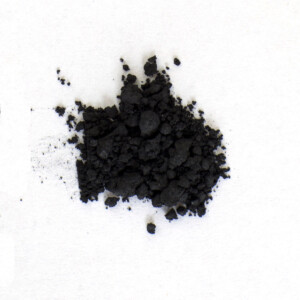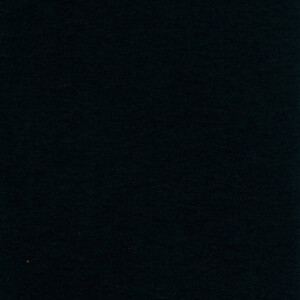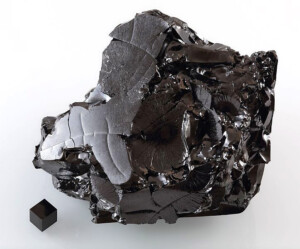Graphite
Natural inorganic pigmentComposition and Properties of Graphite
Graphite in its pure form consists of carbon and is together with diamond one of the modifications of the element carbon. The pigment is absolutely stable, lightfast and compatible with all other pigments.

Pigment

Painted swatch
Video: 'Graphite' by Smithsonian American Art Museum
Names
Alternative names
Plumbago, potlot, carbon black
Color Index
PBk 10, CI 77265
Word origin
From German Graphit, coined 1789 by German mineralogist Abraham Gottlob Werner (1750-1817) from Greek graphein “write”. So called because it was used in making pencils.
From Online Etymology Dictionary
Graphit
German
Graphite
French
Grafite
Italian
Grafito
Spanish
Preparation
Graphite can be found in nature as a mineral. The pigment is prepared by purification of the natural material. It can also be prepared synthetically by heating coke to a temperature of 3000 °C.
History of Use
Graphite black had been in use since antiquity.
Identification
Raman Spectrum
Raman spectrum at the Experimental Physics Laboratory of the University of Minnesota.
References
(1) Eugenia P. Tomasini, Emilia B. Halac, María Reinoso, Emiliano J. Di Liscia and Marta S. Maier, Micro-Raman spectroscopy of carbon-based black pigments, Journal of Raman Spectroscopy, Special Issue: Raman spectroscopy in art and archaeology, Volume 43, Issue 11, pp. 1671–1675, November 2012.
(2) Alessia Coccato, Jan Jehlicka, Luc Moens and Peter Vandenabeele, Raman spectroscopy for the investigation of carbon-based black pigments, Journal of Raman Spectroscopy, Special Issue: 11th International GeoRaman Conference, Volume 46, Issue 10, pages 1003–1015, October 2015. DOI: 10.1002/jrs.4715. Available as pdf.
Further Reading
References
(1) Winter, J. and West FitzHugh, E., Pigments based on Carbon, in Berrie, B.H. Editor, Artists’ Pigments, A Handbook of Their History and Characteristics, Volume 4, pp. 1-37.
(2) J. Winter, “The Characterization of Pigments Based on Carbon” Studies in Conservation, 28:49-66, 1983.
(3) Smith, Tony. “A review of carbon black pigments.” Pigment & Resin Technology 12.4 (1983): 14-16.
S. Muntwyler, J. Lipscher, HP. Schneider, Das Farbenbuch, 2nd. Ed., 2023, alataverlag Elsau, p. 64.

